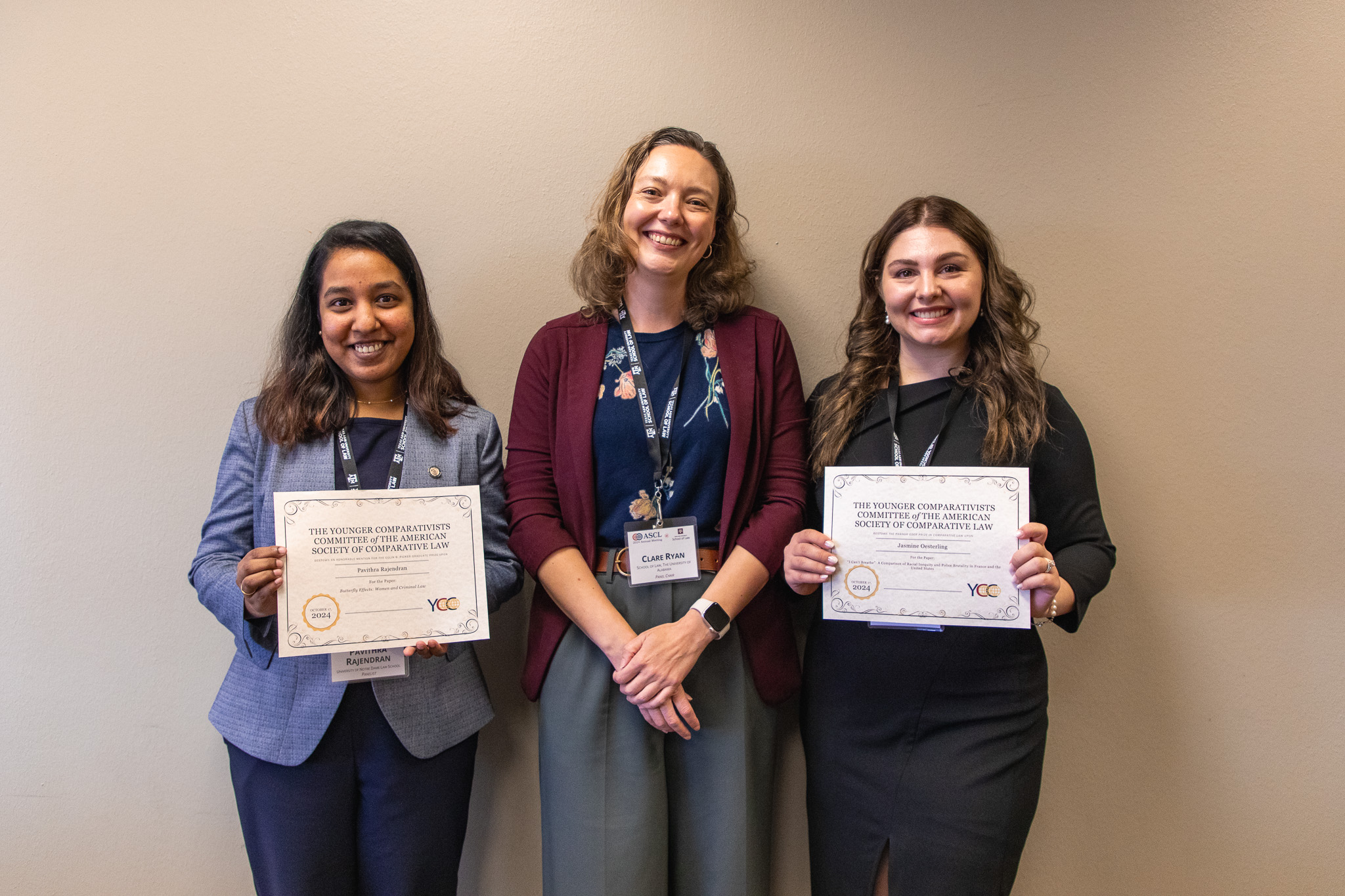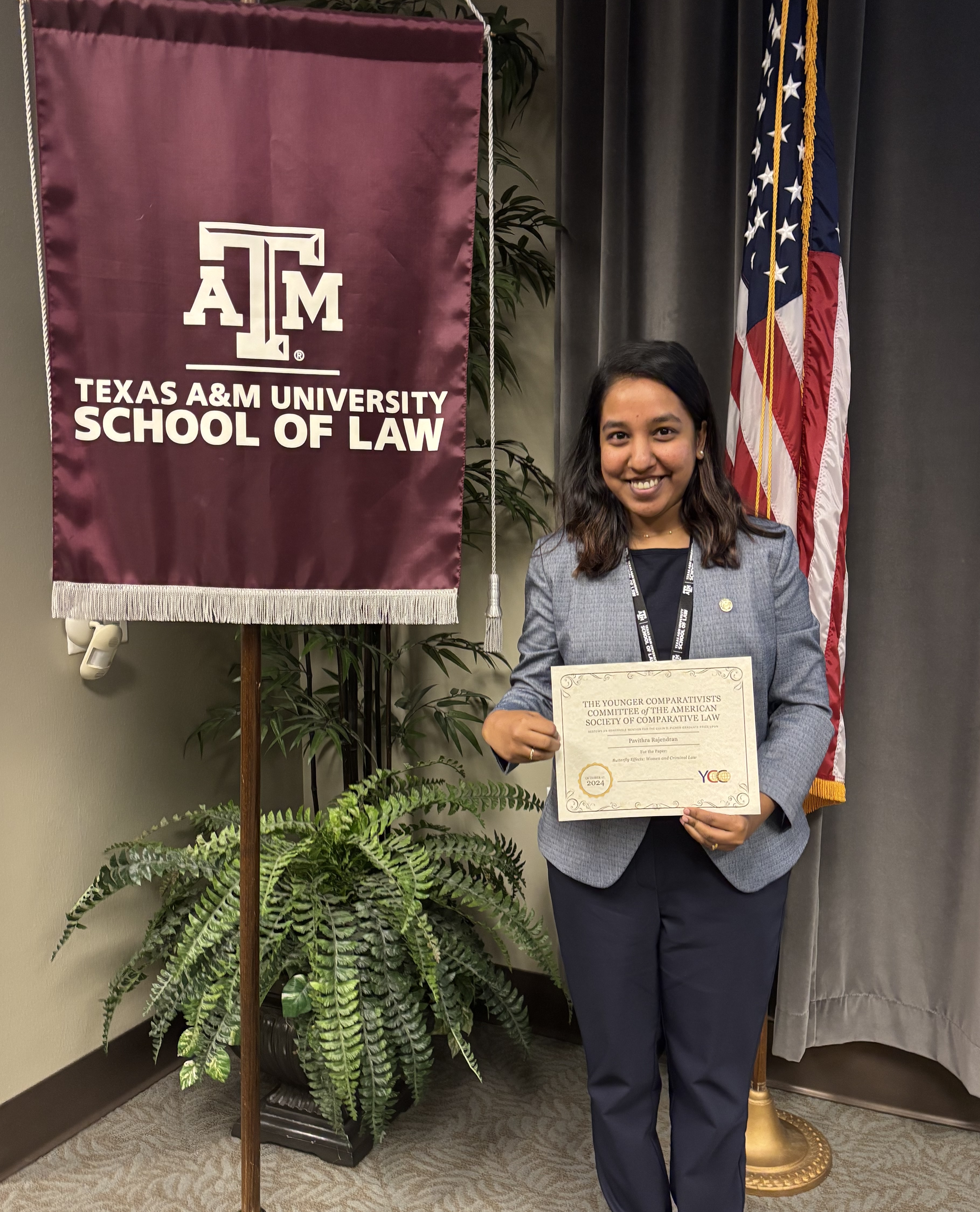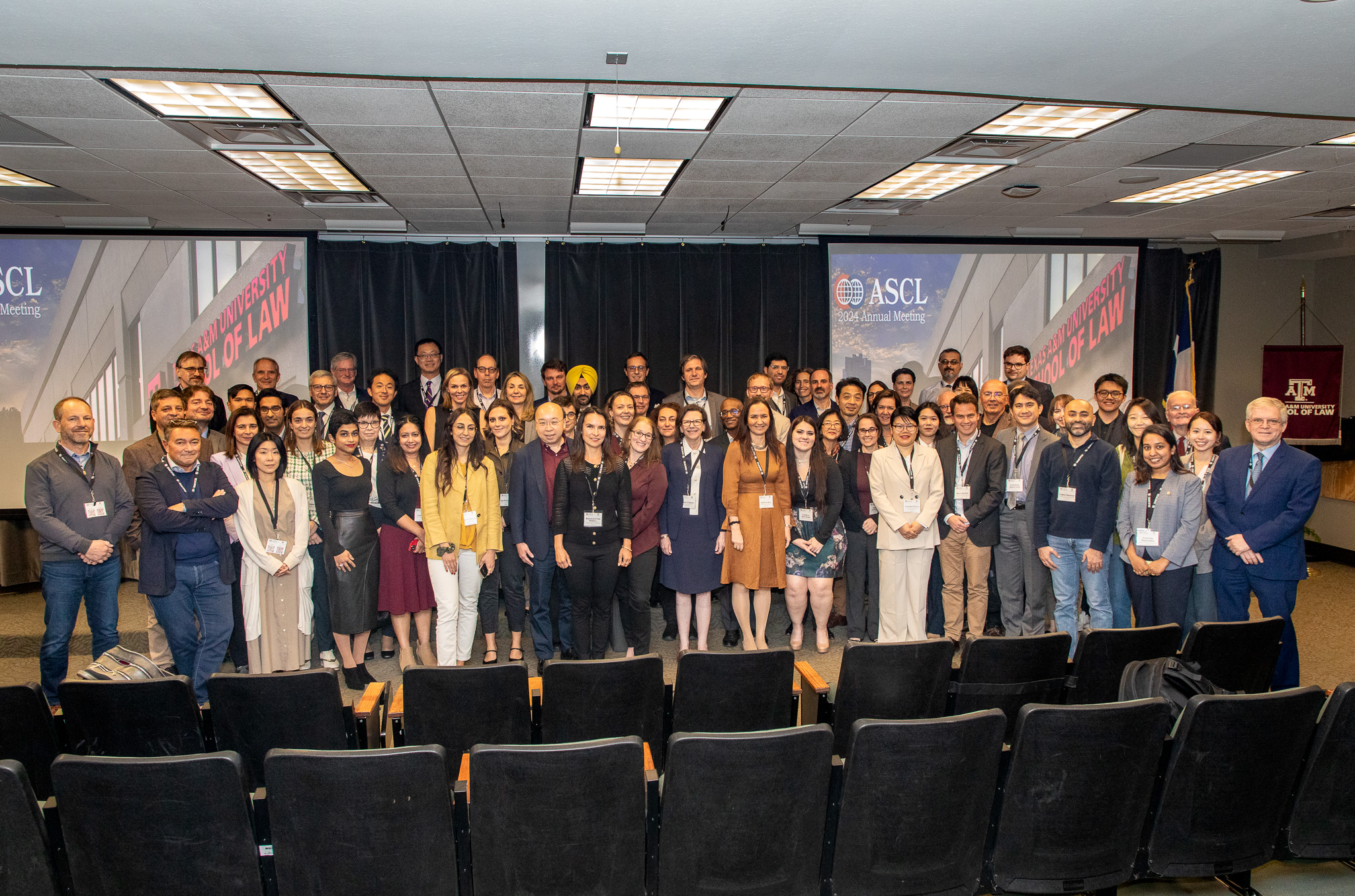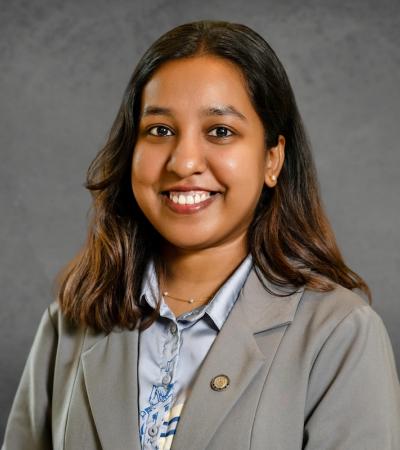2024 American Society of Comparative Law Younger Comparativists (ASCL-YCC) Committee Meeting; Texas A&M University
Kellogg Institute Conference Travel Grants
Conference: 2024 American Society of Comparative Law Younger Comparativists (ASCL-YCC) Committee Meeting at Texas A&M University, Forth Worth, Texas
October 17 – 19, 2024
Presentation: “Butterfly Effects: Women and Criminal Law – A Comparative Analysis of Sri Lanka and the United States of America”
REPORT:



At the Annual Meeting of the American Society of Comparative Law’s Younger Comparativists Committee (YCC), I had the opportunity to present my paper titled “Butterfly Effects: Women and Criminal Law – A Comparative Analysis of Sri Lanka and the United States of America,” hosted by Texas A&M School of Law, Fort Worth, this year. This international gathering connects comparative law scholars from both national and international forums, providing a platform for intellectual exchange and collaboration. As a panelist under the “Criminal Law” panel, moderated by Professor Clare Ryan of the University of Alabama School of Law, I had the chance to share my research with leading scholars in the field.
The focus of my presentation was on three core areas of the paper: first, how small legislative changes can either impede or significantly advance women's rights in criminal law; second, a comparative analysis of the legal frameworks of Sri Lanka and the United States, with an emphasis on addressing vulnerabilities in existing laws to promote gender equality; and third, recommendations for enhancing gender sensitivity and protecting women's rights in Sri Lanka, with insights drawn from U.S. practices and international standards, particularly the Convention on the Elimination of All Forms of Discrimination Against Women (CEDAW).
During my session, the Chair of the panel, along with several participants including the President of the American Society of Comparative Law, Professor Máxima Langer of UCLA Law School, provided me with constructive feedback and thought-provoking questions. Their insights have been invaluable in refining my paper further. Since this paper is set to be published in the Washington International Law Journal in their Spring 2025 issue, I am particularly excited to incorporate these suggestions before the final submission.
Beyond the academic insights, one of the greatest benefits of the conference was the development of my public speaking and presentation skills. Presenting to a diverse audience of international scholars, some of whom are leaders in their field, was both a challenge and a valuable learning experience. The opportunity to articulate complex issues in comparative criminal law to such a broad and diverse audience helped me refine how I communicate and engage in scholarly discourse. It pushed me to clarify my arguments, anticipate diverse perspectives, and adapt my delivery to ensure that my points were accessible to both experts and non-experts in the field.
Additionally, the conference provided invaluable opportunities for networking. I engaged with early-career, mid-career, and well-established scholars in the field of comparative law, which I believe will be significant for my future academic and professional development. The preliminary session organized by YCC@ASCL focused on how early-career scholars can establish themselves in academia, offering invaluable advice on how comparative law can help scholars carve out a unique identity in the academic world. I found this session particularly insightful, as it provided practical strategies for professional growth.
One of the most memorable moments of the conference was the annual competition for the Best Graduate Student’s Comparative Law Paper, named the Colin B. Picker Graduate Prize. This award, which recognizes the best paper submitted by a graduate student to the annual YCC Conference, has been granted for the past 13 years. My paper received an Honorable Mention, making me the first graduate student from the University of Notre Dame to receive this recognition. This accomplishment is a source of pride not only for me but also for Our Lady’s University.
Overall, the American Society of Comparative Law’s Annual Meeting was an enriching experience that allowed me to share my research, receive critical feedback, and connect with scholars from around the world. I am grateful for the recognition my work received and look forward to future opportunities to contribute to comparative law.






